Saloon Automobile in UK | Still in the Market or Out With a Whimper?
As of today, we can say that sedan cars used to be the most coveted modes of vehicles in Britain. These cars were ideal for families, ‘business class’ individuals, or any other person looking for a luxurious and smooth experience. The situation has changed now, as SUVs, crossovers, and hatchbacks are more common. This begs the question: What is a saloon vehicle and does it still hold value in the contemporary UK motors scene?
Let’s try to find out the answer to this question alongside other questions like “Why do Brits call it saloon cars?”, “What is called saloon car in the UK?” and “Who still makes saloon cars in the year 2025?”
What strikes your mind first is: What is a saloon vehicle?
In the UK, a saloon car refers to one that has an enclosed boot (or trunk for our American friends) which usually has four doors. Simply put, this is the British version of what Americans know as a sedan.
It follows the three-box design:
1. Engine bay (front)
2. Passenger cabin (middle)
3. Boot (rear)
Unlike hatchback-style cars, the saloon’s rear window does not lift together with the boot lid. This offers more separation from the luggage area, which often means a quieter cabin, as well as a more traditional shape.
Formality aside, the saloon is often put in the executive category, hence its widespread use in business fleets and taxi services.
This leads quite nicely into the reason why Brits call it a saloon car.
“This leads quite nicely into another common question:
Why do Brits call it a saloon car?”
The word “saloon” comes from horse-drawn carriages and motor vehicle history. A saloon is an enclosed carriage for passengers dating back to the early 20th century. When automobiles evolved to come with an enclosed cabin with separate luggage compartment, the name was retained.
While in the continent, they started using the term sedan for the same purpose even though it describes essentially the same thing. This differs from both regions over time stuck to their chosen words, where the UK stuck to “saloon” as the primary for this type of automobile.
Interestingly, both terms are still widely recognized globally, but the British use of ‘saloon’ stands firm in pamphlets, ads, and critiques.
What Kind of Car Is a Saloon in The UK?
You are probably thinking, “What kind of car is a saloon in the UK?”
Take a look at both historic and contemporary examples that most Brits would recognize:
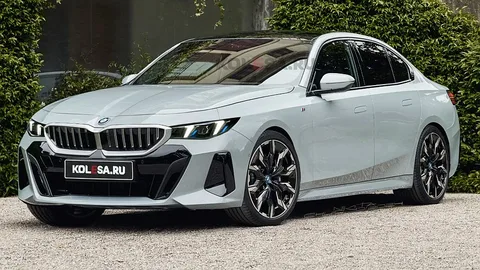
- BMW 3 Series – One of the UK’s long-standing favourite cars that offers both practicality and performance.
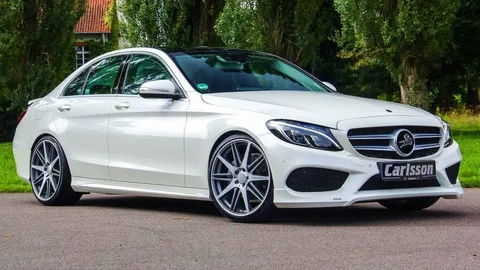
- Mercedes-Benz C-Class – Famous for its comfort and prestige, especially on longer motorway commutes.
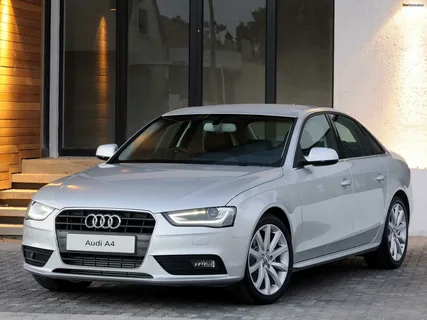
- Audi A4 – A modern styled sharp-handling saloon that has strong tech features.
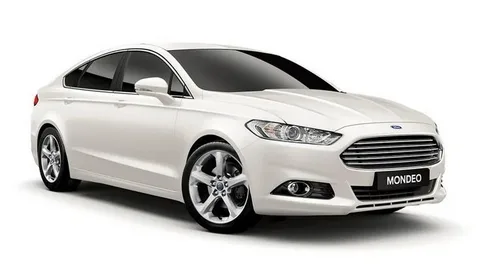
- Ford Mondeo – Used to be a favourite among family and business drivers, but has been discontinued in the UK.
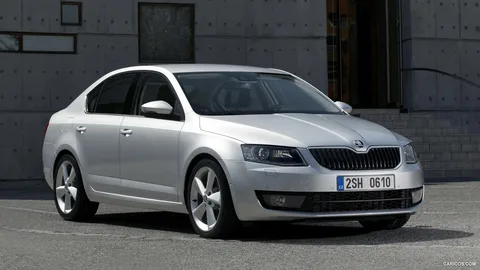
- Skoda Octavia – Technically called a hatchback but shaped like a saloon and serves the same purpose.
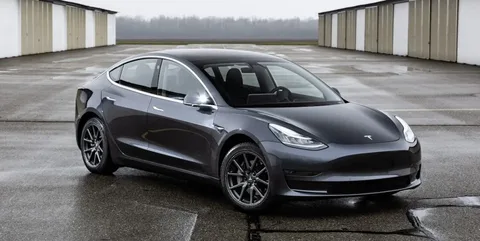
- Tesla Model 3 – A modern electric take on the saloon shape.
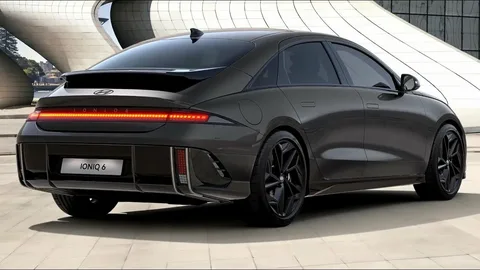
- Hyundai Ioniq 6 – Futuristic electric vehicle with a clear design resemblance to saloons.
Saloon cars all over the world still feature the traditional layout of a boot/trunk. Despite the growing popularity of taller SUVs, these cars cater to those who want a lower ride height, smoother handling, and a sleeker appearance.
The Appeal of Saloon Cars in the UK
With other automobile types gaining popularity, saloon cars continue to be prevalent for a few reasons:
Comfortable Ride
Saloons tend to have a more comfortable ride compared to their hatchback or SUV counterparts, especially when considering long distances.
Lower Centre of Gravity
This promotes better handling and a more engaging driving experience—more so in models focused on performance like BMW M3 or Audi S4.
Boot Space
Although not as flexible as a hatchback, many saloons provide deep and secure boot space that is ideal for suitcases and equipment.
Quiet Cabins
The physical separation between the passenger area and boot can help reduce road noise and thus contribute to a quieter cabin.
Who Still Makes Saloon Cars?
Now lets answer this core question “Who still makes saloon cars?”
While some manufacturers already ditched saloons for SUVs and hatchbacks, there are still plenty that keep the format alive. Here are brands that continue to produce popular saloon models.
🔹 BMW
From the entry-level 2 Series Gran Coupe to the iconic 7 Series, BMW remains one of the UK’s most reliable sources for saloons.
🔹 Mercedes-Benz
The leading luxury sedan makers continue offering the best in luxury saloons with the C-Class, E-Class, and S-Class, each featuring differing levels of technology, comfort, and size.
🔹 Audi
Both the A4 and A6 as well as the flagship A8, are staying true to the salon design while featuring Audi’s signature tech and style.
🔹 Skoda
Superb and Octavia models may appear to be hatchbacks but are actually saloon in shape and intent.
🔹 Tesla
Even though the Model 3 is electric, it meets all the saloon requirements in terms of layout, performance, and metropolitan popularity.
🔹 Hyundai & Kia
Hyundai with the Ioniq 6 and Kia with the straddling category EV6 are pioneer brands redefining the saloon silhouette with EV design.
Even though Vauxhall and Ford are reducing their offer of saloon cars in the UK, there’s still a strong selection for those wishing for a lower stance sleeker silhouette sedan car.
Are Saloons Still Popular In The UK?
The days when saloon vehicles were the norm are clearly in the past. Like many UK families, SUVs and crossovers are now the popular choice because of the:
- Higher driving position
- Perceived safety
- Flexible boot space
- Easier access for child seats and mobility
But, to this day, saloons remain appealing to a lot of drivers who prioritize fuel economy, design, construction quality, as well as road handling. Not to mention, the second-hand market continues to boast a variety of affordable and high-quality used saloon cars, particularly for business fleet and private hire vehicles.
EVs And The Future Of Saloon Cars
Electric vehicles of today are reinvigorating the saloon style. Even though many new EVs are crossovers, some others, like the Tesla Model 3 and Hyundai Ioniq 6 showcase spaces for interiors with generous range, sporty four-door styling, and compelling efficiency.
Because battery packs are commonly placed under the floor, EV saloons have a low profile combined with an aerodynamic shape which is ideal for efficiency and long-range driving.
Look forward to an increase in the availability of electric saloons hitting the UK market in the upcoming years as manufacturers strive to improve range without creating an oversized SUV.
Advantages and Disadvantages of Having a Saloon Car in 2025
For UK drivers thinking about getting a saloon, here’s a summary of key points to consider:
Pros:
Nicer looking than many crossovers.
Better acceleration and handling.
Lower insurance fees than performance SUVs.
Equally useful features but often cheaper than SUVs.
Cons:
Not good for very rough terrain.
Sitting position is too low for some drivers and passengers.
Less convenient boot access than hatchbacks and estates.
It depends on what you value most in a vehicle. If you appreciate smooth driving alongside sleek and classic designs, a saloon still makes plenty of sense.
Noteworthy Saloons in British Car History
Let’s pay tribute to some of the iconic saloon cars that defined the UK automotive industry:
- Vauxhall Cavalier – Very popular in the ’80s and ’90s.
- Jaguar XJ – A symbol of British luxury and class.
- Ford Cortina – A staple on British roads in the ’60s and ’70s.
- Rover 75 – A final salute to classic British saloon styling.
Car enthusiasts and collectors continue to adore these models, which paved modern saloons, showcased timeless designs, and earned the admiration of those who appreciate true craftsmanship.
Concluding Remarks
Even if the saloon car isn’t the most fashionable option on the UK’s list of vehicles today, it isn’t dead either. For a lot of drivers, it still remains unmatched when it comes to comfort, style, and performance. Their future is also not as dim as most people might think, especially with electric saloons coming into the picture.
To sum it up
What is a saloon vehicle?
A type of car featuring four doors, a separate boot, and a classic three-box design.
Why do Brits call it a saloon car?
The name has historical significance stemming from the days of early passenger vehicles.
What car is called a saloon in the UK?
Think of BMW 3 Series, Audi A4, and Mercedes C-Class.
Who still makes saloon cars?
There are still brands like BMW, Mercedes, Audi, Tesla, Skoda, and Hyundai.
So for the next time you’re shopping for a new car or searching through the markets for a used vehicle, try not to dismiss the old saloon. It might just be the car you’re looking for.




Post Comment